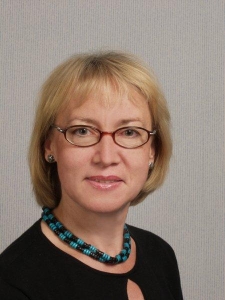Calendar of Music Events
VISIONI DALL'ESTONIA (Musical Visions from Estonia) - Marju Riisikamp, organ recital
Marju Riisikamp (organ)
Program:
St Agata Church at 8.45 pm
Giovanni GABRIELI
(ca. 1557 – 1612)
Canzon I ‘La Spiritata’ à 4
Bernardo STORACE
(? – 1664)
Ballo della battaglia
Ciacona in C
Bernardo PASQUINI
(1637 – 1710)
Toccata con lo scherzo del cucco
--
St Lorenzo Church at 9.30 pm
Franz SCHUBERT
(1797 – 1828)
Fuga in mi minore D. 952, op. postuma 152 (1828)
Sergej RACHMANINOV
(1873 – 1943)
Vocalise (da Quatorze Romances op. 34 n. 14, 1912)
Gerhard LAGRANGE
(1939)
Adagio per tromba ed orchestra (trascrizione per organosolo di Marju Riisikamp)
Dom Paul BENOÎT, OSB
(1893 – 1979)
Le Bon Pasteur
Johann Sebastian BACH
(1685 – 1750)
Fantasia super: Komm, Heiliger Geist, Herre Gott BWV 651
"Visions from Estonia" seals a 'welcome return' to Budrio of the harpsichordist, pianist and organist Marju Riisikamp. In fact, she performed at Budrio in 2004, 2007 and 2012.
Marju Riisikamp is considered among the most authoritative exponents of that new interpretive school which, in the Baltic countries, is spreading the European musical culture of the Five and Seventeenth century according to an executive practice based on careful research on the original sources.
"Every instrumentalist-interpreter", Marju Riisikamp reveals to us, "is attracted by the so-called historically informed performance. But more than anything else is the overall view of the works that is entirely personal. The important thing is to express yourself and the beauty values that these music infuse the public."
"My vision is the result of the study and the performance of the scores (under the guidance of Christopher Stembridge for 25 years!) On the historical organs of Arezzo, Siena, Montepulciano, Ferrara, Brescia ... It takes a lot of imagination, great ability to find the metric and melodic structures of the compositions I will present tonight ... and of course 'read' these scores with the rules of these periods (from the 17th to the 17th century) with imagination, freedom and revealing the innumerable secrets that this music suggests. A performer 'sculptor', therefore, who forms the musical text from the 'primordial chaos'."
Program:
St Agata Church at 8.45 pm
Giovanni GABRIELI
(ca. 1557 – 1612)
Canzon I ‘La Spiritata’ à 4
Bernardo STORACE
(? – 1664)
Ballo della battaglia
Ciacona in C
Bernardo PASQUINI
(1637 – 1710)
Toccata con lo scherzo del cucco
--
St Lorenzo Church at 9.30 pm
Franz SCHUBERT
(1797 – 1828)
Fuga in mi minore D. 952, op. postuma 152 (1828)
Sergej RACHMANINOV
(1873 – 1943)
Vocalise (da Quatorze Romances op. 34 n. 14, 1912)
Gerhard LAGRANGE
(1939)
Adagio per tromba ed orchestra (trascrizione per organosolo di Marju Riisikamp)
Dom Paul BENOÎT, OSB
(1893 – 1979)
Le Bon Pasteur
Johann Sebastian BACH
(1685 – 1750)
Fantasia super: Komm, Heiliger Geist, Herre Gott BWV 651
"Visions from Estonia" seals a 'welcome return' to Budrio of the harpsichordist, pianist and organist Marju Riisikamp. In fact, she performed at Budrio in 2004, 2007 and 2012.
Marju Riisikamp is considered among the most authoritative exponents of that new interpretive school which, in the Baltic countries, is spreading the European musical culture of the Five and Seventeenth century according to an executive practice based on careful research on the original sources.
"Every instrumentalist-interpreter", Marju Riisikamp reveals to us, "is attracted by the so-called historically informed performance. But more than anything else is the overall view of the works that is entirely personal. The important thing is to express yourself and the beauty values that these music infuse the public."
"My vision is the result of the study and the performance of the scores (under the guidance of Christopher Stembridge for 25 years!) On the historical organs of Arezzo, Siena, Montepulciano, Ferrara, Brescia ... It takes a lot of imagination, great ability to find the metric and melodic structures of the compositions I will present tonight ... and of course 'read' these scores with the rules of these periods (from the 17th to the 17th century) with imagination, freedom and revealing the innumerable secrets that this music suggests. A performer 'sculptor', therefore, who forms the musical text from the 'primordial chaos'."

Back
